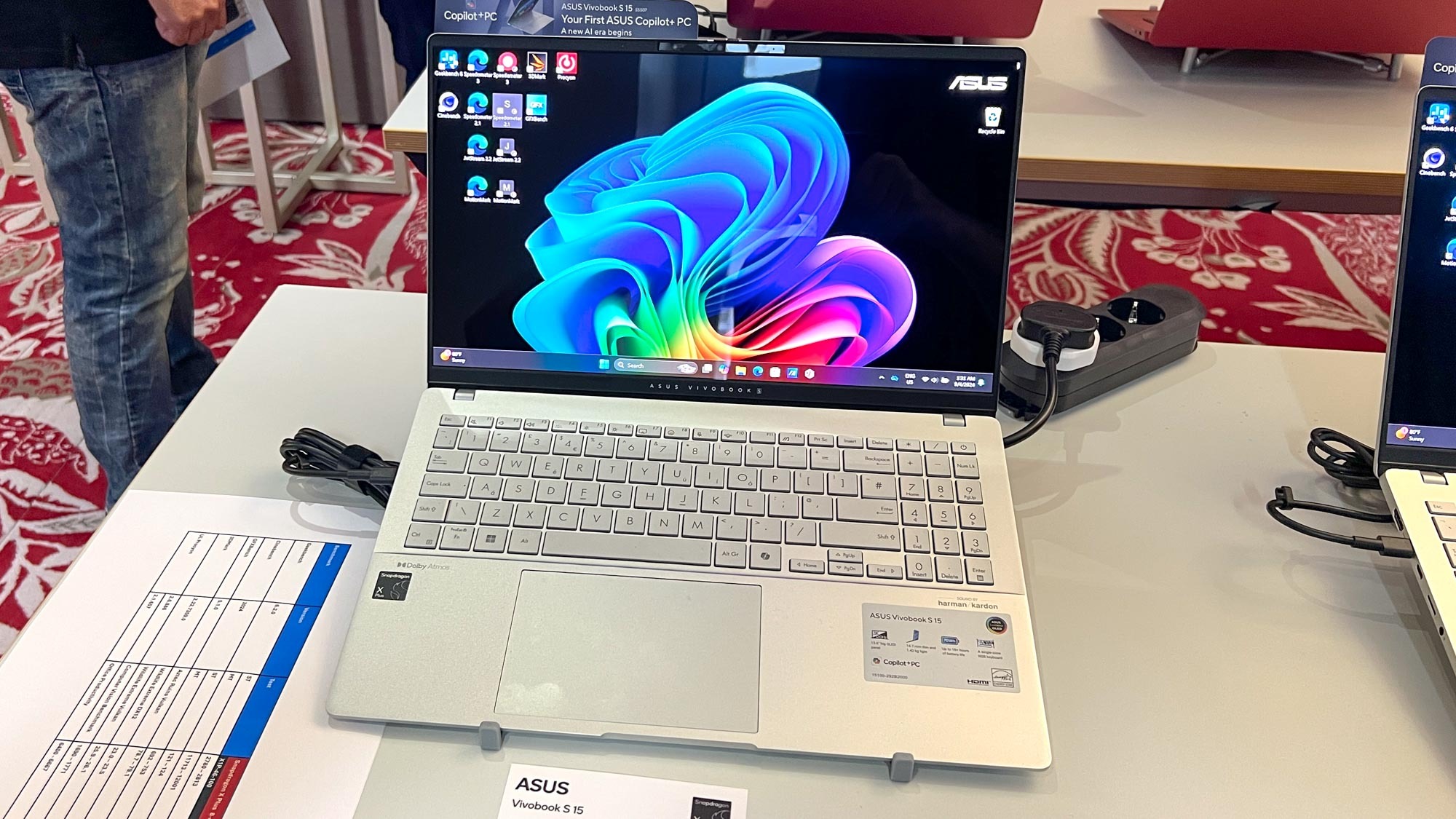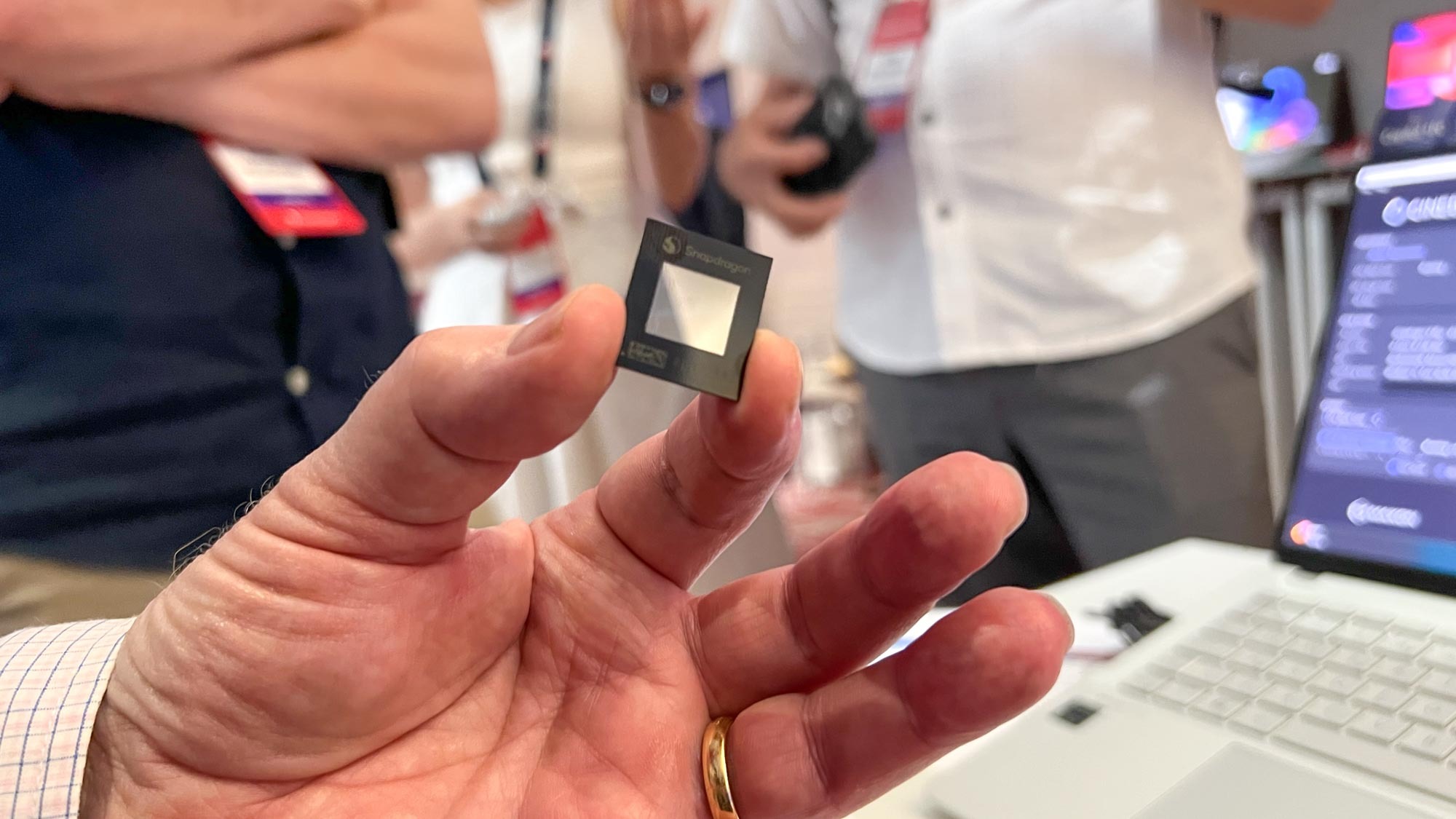We just benchmarked the Snapdragon X Plus — this is a big deal for budget laptops
The results are in

Qualcomm's Snapdragon X laptop processors have impressed us with their excellent performance and power efficiency. Now, the company has unveiled the Snapdragon X Plus 8-core, which promises the same long-lasting battery life and AI performance as the Snapdragon X Elite and 10-core Snapdragon X Plus, only at a lower cost.
This begs the question: how well does this new Qualcomm laptop chip perform?
During a benchmarking session Qualcomm held just before IFA 2024, I got to see how the company’s newest chip performed in a slew of benchmarking tests. Though limited to the benchmarking apps Qualcomm had pre-installed on the test laptops, I was still able to run these tests for myself. And I have to say, I’m pretty impressed by the results so far.
So how does the Snapdragon X Plus 8-core compare to its Snapdragon X counterparts and its rivals? Let’s look at the numbers!
Snapdragon X Plus: Specs
| Header Cell - Column 0 | Snapdragon X Plus (X1P-42-100) | Snapdragon X Plus (X1P-42-100) |
|---|---|---|
| Cores | 8 | 8 |
| Frequency (max) | 3.4GHz | 3.2GHz |
| Memory bandwidth | 135GB/s | 135GB/s |
| Cache (total) | 30MB | 30MB |
Snapdragon X Plus 8-core: Benchmark results

To demonstrate the power of the 8-core Snapdragon X Plus, Qualcomm ran tests on the new Asus Vivobook S 15. This laptop is similar to the reference design the company uses for its own benchmarking and sports a 15.6-inch (2880x1620) OLED touch panel, 16GB of RAM and a 70Wh battery. I ran my tests on this refreshed Asus laptop packing the higher-end X1P-42-100 Snapdragon X Plus 8-core chip.
Qualcomm had many benchmarking programs installed on the test machines, including Cinebench, GFX Bench and UL Procyon. However, I focused on Geekbench 6 and 3DMark Wildlife since those are two benchmarks we use in our reviews — which makes it easier to compare my results against other laptops we’ve tested.
| Header Cell - Column 0 | Snapdragon X Elite (X1P-46-100) | Apple M3 | Intel Core Ultra 7 155H |
|---|---|---|---|
| Geekbench 6 (single-core) | 2,422 | 3,102 | 2,364 |
| Geekbench 6 (multi-core) | 11,345 | 12,052 | 12,612 |
On the Geekbench 6 multi-core CPU performance test, the Vivobook S 15 with Snapdragon X Plus 8-core scored 2,422 in the single-core portion of the test and 11,345 in the multi-core test.
Sign up to get the BEST of Tom's Guide direct to your inbox.
Get instant access to breaking news, the hottest reviews, great deals and helpful tips.
As you can see in the table above, this performance from the lower-end chip doesn’t quite match notebooks like the HP OmniBook X (Snapdragon X Elite), MacBook Air (Apple M3) or Acer Swift Go 14 (Intel Core Ultra 7). However, there isn’t a giant chasm between these systems, numbers-wise. Qualcomm’s newest processor isn’t the most powerful but it’s not slouching either, at least based on these results.
| Header Cell - Column 0 | 3D Mark Wildlife Extreme |
|---|---|
| Snapdragon X Plus (X1P-46-100) | 41 FPS |
| Snapdragon X Elite (X1E-80-100) | 36 FPS |
| Apple M3 | 45 FPS |
To vet graphics capability I used the 3DMark Wild Life Extreme benchmark, which tests the laptop's 3D rendering capabilities and returns both an overall score and frame rate in frames per second (FPS).
Notably, Qualcomm didn't say how the 8-core X Plus chip scored on this benchmark, but the company claims the processor achieved 41 frames per second in the test. That’s better than the OmniBook X (36 FPS) but just a tad under the MacBook Air M3 (45).

Don’t get overly excited if you think the Snapdragon X Plus 8-core might be decent for gaming. When I fired up the Steel Nomad benchmark within 3D Mark, it resulted in a score of 1,143 and a frame rate count of 8 FPS. Also, considering how Civilization VI ran at about 20 frames per second on laptops with an X Elite chip, don’t expect machines with X Plus 8-core to play the best PC games locally.
Outlook
The Snapdragon X Plus 8-core isn’t here to put Apple and Intel on notice like the Snapdragon X Elite has. However, based on the CPU benchmarks I ran on the new Asus Vivobook S 15, Qualcomm’s humble processor should offer solid enough performance for web browsing, word processing, streaming videos and other everyday computing tasks. Combine that with machines that start as low as $699 and you have a recipe for success.
Of course, we’ll see what our in-house benchmarking tests have to say before I cast final judgment on the 8-Core Snapdragon X Plus. If it can deliver decent performance with the same phenomenal battery life as X Elite laptops, then machines with Qualcomm’s processor should be good for budget-minded folks or students who want a dependable laptop that can last all day.
The first wave of Snapdragon X Plus 8-core laptops start shipping on September 24, so expect reviews from us in the coming weeks!
More from Tom's Guide
- Acer takes on the Steam Deck with Nitro Blaze 7
- I turned the Asus ROG Ally X into a Steam Deck
- Intel Lunar Lake — everything you need to know

Tony is a computing writer at Tom’s Guide covering laptops, tablets, Windows, and iOS. During his off-hours, Tony enjoys reading comic books, playing video games, reading speculative fiction novels, and spending too much time on X/Twitter. His non-nerdy pursuits involve attending Hard Rock/Heavy Metal concerts and going to NYC bars with friends and colleagues. His work has appeared in publications such as Laptop Mag, PC Mag, and various independent gaming sites.










